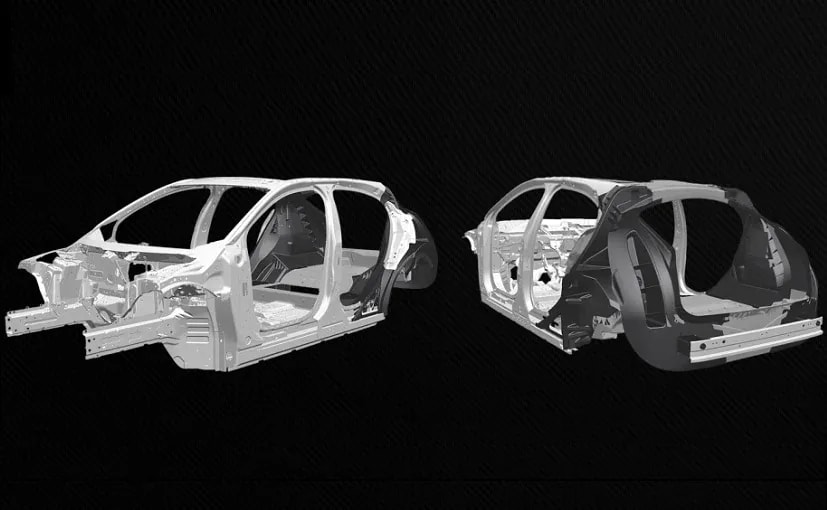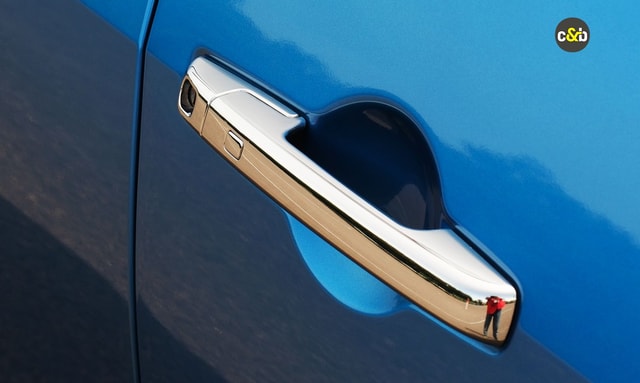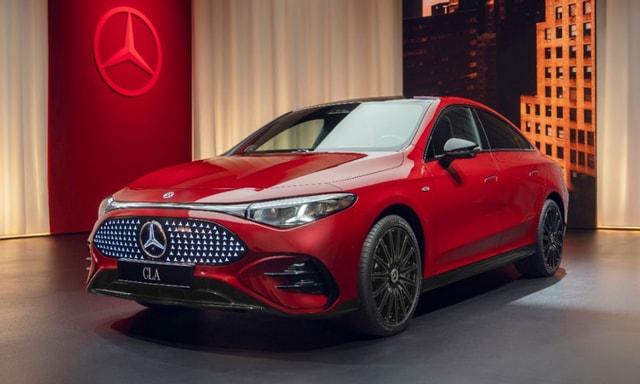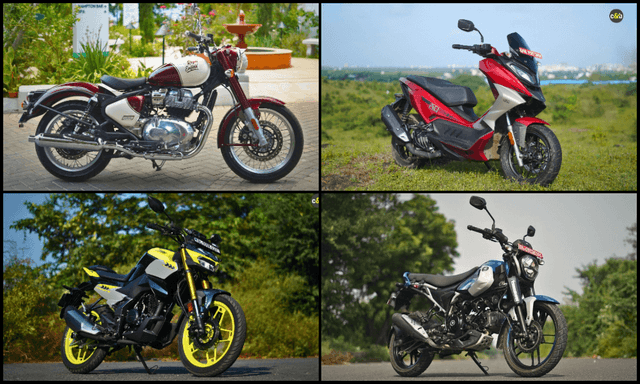Jaguar Land Rover Embarks On Advanced Composites Project For Future EVs

Jaguar Land Rover is preparing for future electric vehicles with advanced lightweight composite research that will help deliver increased range, greater performance and a more dynamic drive. The Tucana project is a four year programme to make the UK a world leader in low-carbon technology, helping prevent 4.5 million tonnes of CO2 emissions between 2023 and 2032 by accelerating mainstream use of electric vehicles and making vehicles lighter to both decrease tailpipe emissions and reduce energy consumption of electrified powertrains.
Also Read: Tata Warns Of Another Loss At JLR As Demand Slow To Pick Up
By 2022, Jaguar Land Rover expects to have developed a fleet of prototype Tucana test vehicles.
The research will allow Jaguar Land Rover to develop lightweight vehicle and powertrain structures by replacing aluminium and steel with composites capable of handling the increased torque generated by high-performance batteries, while improving efficiency and reducing CO2 impact.
Jaguar Land Rover aims to increase vehicle stiffness by 30 per cent, cut weight by 35kg and further refine the crash safety structure through the strategic use of tailored composites, such as carbon fibre. Reducing the vehicle body weight will allow the fitting of larger batteries with increased range - without impacting CO2 emissions. Advanced composites offer significant reductions in vehicle weight, and by 2022, Jaguar Land Rover expects to have developed a fleet of prototype Tucana test vehicles.
Marcus Henry, Research Manager at Jaguar Land Rover, said, "This project will allow the true environmental credentials of electric vehicles to be realised by enabling wider adoption of the technology and will propel Jaguar Land Rover and the UK supply chain into a world-leading position in low-carbon technology."
Jaguar Land Rover aims to increase vehicle stiffness by 30 per cent and cut weight by 35kg
Also Read: Tata Motors Worried By Chip Shortage, Brexit Breakdowns
The continued electrification of Jaguar and Land Rover vehicles is part of a commitment to make societies safer and healthier through innovative technology. Jaguar has completed the electrification of its PACE family with the P300e plug-in hybrid powertrain offered on the new Jaguar E-PACE and P400e for Jaguar F-PACE alongside the all-electric Jaguar I-PACE. Similarly, the new Range Rover Velar is now offered with the P400e, completing the hybrid options available across the Range Rover family.
Latest News
 car&bike Team | Feb 3, 2026China Mandates Fitting of Mechanical Door Handles On New Cars From 2027Vehicles already on sale to be given an additional 2 years to conform to the new norms.2 mins read
car&bike Team | Feb 3, 2026China Mandates Fitting of Mechanical Door Handles On New Cars From 2027Vehicles already on sale to be given an additional 2 years to conform to the new norms.2 mins read car&bike Team | Feb 3, 2026Mercedes-Benz CLA EV India Debut In April 2026The new-gen CLA, in its all-electric avatar, was globally unveiled in March 2025.1 min read
car&bike Team | Feb 3, 2026Mercedes-Benz CLA EV India Debut In April 2026The new-gen CLA, in its all-electric avatar, was globally unveiled in March 2025.1 min read car&bike Team | Feb 3, 2026Two-Wheeler Sales January 2026: Hero MotoCorp, TVS, Royal Enfield, Suzuki Report Sustained GrowthMost brands have reported year-on-year growth in the first month of CY26.4 mins read
car&bike Team | Feb 3, 2026Two-Wheeler Sales January 2026: Hero MotoCorp, TVS, Royal Enfield, Suzuki Report Sustained GrowthMost brands have reported year-on-year growth in the first month of CY26.4 mins read car&bike Team | Feb 2, 2026Car Sales January 2026: Six Marutis in Top 10, But Tata Nexon Takes Top SpotTata Motors sold 23,365 units of the Nexon, creating a clear gap to the Maruti Suzuki Dzire, which finished second with 19,629 units.1 min read
car&bike Team | Feb 2, 2026Car Sales January 2026: Six Marutis in Top 10, But Tata Nexon Takes Top SpotTata Motors sold 23,365 units of the Nexon, creating a clear gap to the Maruti Suzuki Dzire, which finished second with 19,629 units.1 min read car&bike Team | Feb 2, 2026Maruti Suzuki Victoris Crosses 50,000 Sales Milestone In 4 monthsThe compact SUV launched at the onset of festive season has crossed the 50,000 sales mark in about 4 months1 min read
car&bike Team | Feb 2, 2026Maruti Suzuki Victoris Crosses 50,000 Sales Milestone In 4 monthsThe compact SUV launched at the onset of festive season has crossed the 50,000 sales mark in about 4 months1 min read car&bike Team | Feb 2, 2026Maruti Suzuki Announces Price Protection Amid Long Waiting PeriodsCountry’s largest carmaker has said that prices of the cars will not be increased for customers who have already made the bookings1 min read
car&bike Team | Feb 2, 2026Maruti Suzuki Announces Price Protection Amid Long Waiting PeriodsCountry’s largest carmaker has said that prices of the cars will not be increased for customers who have already made the bookings1 min read
 Bilal Firfiray | Feb 4, 2026Volkswagen Tayron R-Line Review: Sensible Flagship For IndiaVolkswagen has introduced a made-in-India flagship SUV that offers space, comfort, performance, and German driving finesse in a practical three-row package. But is the Tayron R-Line good enough?6 mins read
Bilal Firfiray | Feb 4, 2026Volkswagen Tayron R-Line Review: Sensible Flagship For IndiaVolkswagen has introduced a made-in-India flagship SUV that offers space, comfort, performance, and German driving finesse in a practical three-row package. But is the Tayron R-Line good enough?6 mins read Preetam Bora | Feb 2, 2026TVS NTorq 150 Road Test Review: Bigger, Better & More Efficient!We test the new TVS NTorq 150 out in the real world to get a sense of what it offers in terms of performance, dynamics and fuel economy.7 mins read
Preetam Bora | Feb 2, 2026TVS NTorq 150 Road Test Review: Bigger, Better & More Efficient!We test the new TVS NTorq 150 out in the real world to get a sense of what it offers in terms of performance, dynamics and fuel economy.7 mins read Bilal Firfiray | Jan 21, 2026Tata Punch Facelift Review: New Turbo Engine; Same Old SoulWith the update, the Tata Punch facelift retains its character of being a healthy runabout, which is perfect for Indian roads. But have these changes made it any better?7 mins read
Bilal Firfiray | Jan 21, 2026Tata Punch Facelift Review: New Turbo Engine; Same Old SoulWith the update, the Tata Punch facelift retains its character of being a healthy runabout, which is perfect for Indian roads. But have these changes made it any better?7 mins read Amaan Ahmed | Jan 17, 2026Bajaj Chetak C25 First Ride Review: Basic, Likeable E-Scooter For First-Time RidersThe Chetak C25, in quite a few ways, is poles apart from the larger and more powerful 30 and 35 Series models, but in its mannerisms, it is very much a Chetak.8 mins read
Amaan Ahmed | Jan 17, 2026Bajaj Chetak C25 First Ride Review: Basic, Likeable E-Scooter For First-Time RidersThe Chetak C25, in quite a few ways, is poles apart from the larger and more powerful 30 and 35 Series models, but in its mannerisms, it is very much a Chetak.8 mins read Bilal Firfiray | Jan 9, 2026Toyota Urban Cruiser Hyryder: 10,000 km Long-Term ReviewAfter spending over three months and 10,000 km with the Toyota Urban Cruiser Hyryder Hybrid, we were impressed by its real-world mileage, seamless hybrid, practical comfort, and Toyota reliability. Is it the best C-SUV then?5 mins read
Bilal Firfiray | Jan 9, 2026Toyota Urban Cruiser Hyryder: 10,000 km Long-Term ReviewAfter spending over three months and 10,000 km with the Toyota Urban Cruiser Hyryder Hybrid, we were impressed by its real-world mileage, seamless hybrid, practical comfort, and Toyota reliability. Is it the best C-SUV then?5 mins read


































































































































